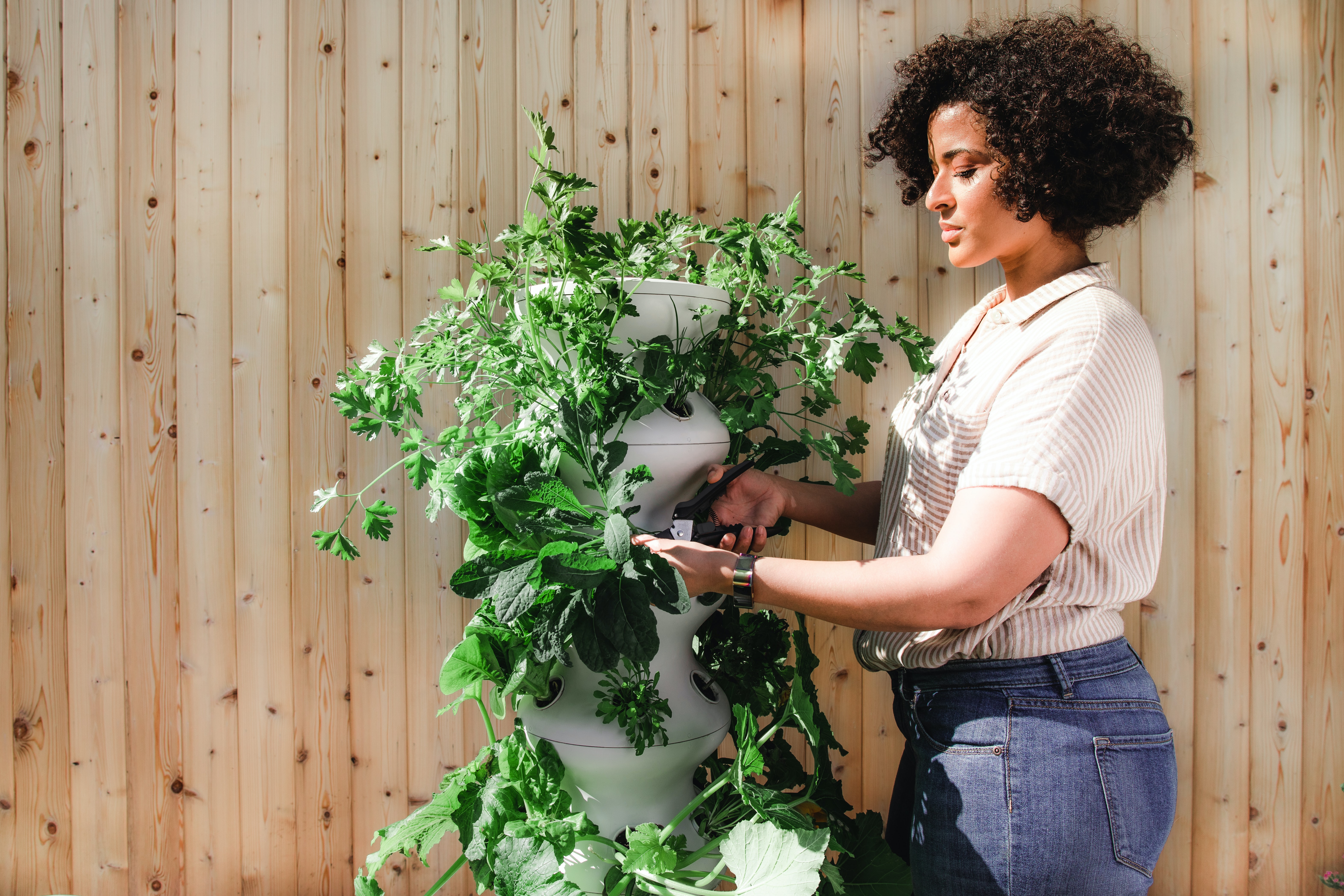The shutdown is turning me into an old-fashioned country wife: I cook, bake, and tend my garden. I pick raspberries and make jam and we eat it on bread that I also make. I find myself wondering how hard canning vegetables might be.
People like me whose professional life is all about talking, reading, and writing need to work with our hands more. It provides balance. It lets us get out of our heads and away from our screens. Our eyes get a break and our crazy monkey minds settle.
In our culture, we outsource manual labor whenever we can afford it. We hire house cleaners, we eat at restaurants and order takeout, and we buy all our clothes. We buy vegetables and bread. We hire landscapers to care for our gardens, and they grow flowers instead of vegetables. And of course, we have dishwashers, bread machines, and other labor-saving gadgets.
It’s convenient, to be sure. But how do we spend all that time that we save, and does it really make us happier?
Being forced to stay home during the shutdown without being able to do any of that outsourcing reminded me of the satisfaction that comes from doing things myself. I enjoyed growing the berries, making the jam, baking the bread. And oh, my jam is so much better than store-bought! I was less excited about building the fences around my raised bed to keep the groundhog out. There was a lot of swearing and some blood was spilled (mine, not his!), but I did it. And I was ridiculously proud of myself.
Doing work with your hands is deeply meditative, especially when the tasks are repetitive. They help the mind slow down. And so, Thich Nhat Hanh focuses on washing the dishes in his classic The Miracle of Mindfulness. You wash a plate, rinse it and put it on the drying rack. And then you wash the next plate. And the next.
For me though, gardening and cooking are better meditative activities than doing dishes. I can wash dishes with my mind on something else, so I have to keep reminding me to pay attention. But if I let my mind wander while I’m gardening, I’ll cut off buds instead of spent flowers. I have to pay attention to what I’m doing. And I have to move my body and use my senses. How does that taste, how does it smell, how does it look? And all that calms me.
Cooking and gardening also let us interact with something that is alive, and which may or may not behave as we expect. We do your best, and then we wait and see. The dough rises slowly one day and quickly the next. One batch of jam is thin, and the next one weirdly thick. Sometimes, seeds just don’t germinate. Bugs eat the greens, and the groundhog decimates the garden. We hope for rain – and then for sun We wait.
My great-grandparents were all farmers. My grandparents left the farms and moved into town, bringing their skills and habits. All the women knitted. Some produced sweaters with intricate patterns while others just made basic socks and mittens. One knitted elegant evening gowns for my Barbie dolls when I was a kid, dazzling me by incorporating sparkling silver threads. They knitted everywhere, on buses and trains, in front of the television, and while having coffee with friends. Their hands were always busy. They knitted and they taught me the basics. They baked. And they picked berries and made jam.
I don’t want to overromanticize the lives of our grandmothers, on the farm or afterwards. One of my grandmothers didn’t work outside the home, and she had to ask her husband’s permission to buy new gloves. And people left the farms because life was too hard there. Trying to grow enough food to feed a family is very different from having a small garden for fun. People were poor and they were hungry.
And I don’t want to wash clothes, linens, and dishes by hand even though I have running hot water, unlike my ancestors on those farms. When my decrepit dishwasher broke down last week, I didn’t even consider spending more time meditatively washing dishes. I ordered a new one.
But I bake my own bread. And maybe one day, I’ll start knitting again.


